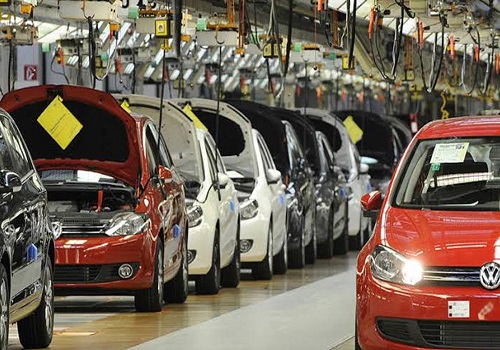
Led by robust two-wheeler (2W) retail sales, the Indian automobile market saw 6.55 per cent growth (year-on-year) in the first six month of current fiscal (FY25), as rural markets are set to spur demand going forward, a report showed on Monday.
The Federation of Automobile Dealers Associations (FADA) said that the April-September period saw 9.08 per cent sales growth in 2W, 7.58 per cent in 3W and 1.07 per cent in passenger vehicles (PVs).
However, consumer vehicles (CV) and tracker retail sales fell by 0.65 per cent and 8.82 per cent, respectively, as per the FADA data.
According to FADA President C.S Vigneshwar, “the Shraddh period further impacted sales negatively, leading to a YoY decline in retail sales across various categories”.
“Discounts and offers have been introduced across segments to stimulate demand, but these have yet to translate into a significant improvement in sales,” he added.
The southwest monsoon recorded 8 per cent above-normal rainfall, disrupting auto retail performance in several regions and negatively impacting demand and walk-ins.
According to FADA, the near-term outlook for automobile retail is cautiously optimistic as both Navratri and Diwali fall in the same month, creating strong expectations for a surge in vehicle sales.
With healthy water levels in reservoirs and improved crop yields supporting rural demand, the festive season is expected to drive a substantial boost in 2W, PV, and tractor sales with new launches been planned for the month.
“However, the PV segment faces a critical situation due to high inventory levels at dealerships. If sales do not pick up as expected in October, Dealers could face significant financial pressure from unsold stock piling up in their warehouses,” the report mentioned.
While dealers and OEMs are betting on robust festive sales, especially in rural markets where positive cash flow and better agricultural conditions are expected to spur demand, the outcome remains uncertain.
“FADA urges OEMs to take immediate corrective measures to avoid a financial setback. We also call on the Reserve Bank of India to issue an advisory to banks, mandating stricter channel funding policies based only on dealer consent and on actual collateral, to prevent dealers from facing additional financial pressure due to unsold stock,” said Vigneshwar.
